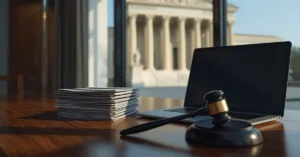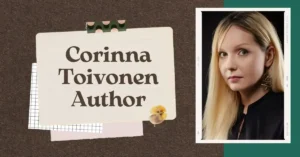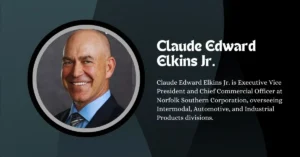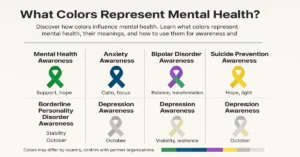Key Intake
Q1: Which zero waste products ideas actually make daily life easier?
The right zero waste products cut plastic and simplify daily life like reusable kitchen tools and eco-friendly home items.
Q2: Can zero waste products save me money?
Yes, reusable products often pay for themselves quickly by replacing disposables.
Q3: What is the most important zero waste product to have?
A reusable water bottle prevents hundreds of single-use bottles from entering landfills annually.
Q4: Are bamboo products better than plastic?
Yes, bamboo is renewable, fast-growing, and biodegradable, unlike fossil-fuel-based plastic.
Q5: Is it safe to use a safety razor?
Yes, with minimal pressure and a 30-degree angle. Practice ensures safety and efficiency.
Q6: Where can I buy zero waste products?
Dedicated zero-waste stores, online marketplaces, and health/beauty aisles in major retailers.
Table of Contents
Quick Answer
Zero waste products ideas can help you save money, reduce landfill waste, and create a healthier home. By prioritizing high use items and making gradual changes, anyone can transition to a low-waste lifestyle.
Introduction
Zero waste products ideas are changing the way households reduce plastic and packaging waste. Consumers discard millions of single-use items every year, yet simple swaps in the kitchen, bathroom, and home can make a huge difference. According to the Ellen MacArthur Foundation, 91% of plastic is never recycled, highlighting the urgency of adopting sustainable living products. Experts at the Environmental Protection Agency emphasize that starting small, with reusable and compostable goods, leads to measurable environmental benefits.
What are the best zero waste products ideas for beginners?

Starting a zero-waste journey is most successful when you begin with a few high-impact, easy-to-adopt items. The best starter products replace the single-use items you discard most frequently and fit seamlessly into your existing routines.
The Core Starter Kit
Essential first swaps include a reusable water bottle, reusable shopping and produce bags, a set of glass or stainless-steel food containers, and cloth napkins. These items target common waste streams like plastic bottles, bags, and paper products.
Personal Care Swaps
In the bathroom, easy changes include switching to a bamboo toothbrush, bar soap, and shampoo bars. These swaps eliminate multiple plastic bottles and packaging with minimal effort.
| Phase | Focus | Example Actions | Estimated Cost |
| Phase 1: Month 1 | Use What You Own | Repurpose jars for storage; cut old towels into rags. | $0 |
| Phase 2: Month 2 | Low-Cost Essentials | Buy from thrift stores; make DIY cleaning supplies. | $15-25 |
| Phase 3: Month 3 | Strategic Purchases | Invest in a quality water bottle and shampoo bars. | $40-60 |
This phased approach prevents overwhelming and unnecessary spending, honoring the core zero-waste principle of reducing consumption before buying new.
What can I use instead of plastic bags?
Plastic bags are a major environmental concern, but numerous durable and sustainable alternatives exist. For shopping, reusable cloth totes and mesh produce bags are perfect replacements, while in the kitchen, silicone bags, beeswax wraps, and reusable containers effectively eliminate plastic zip-top bags and cling film.
For Shopping & Produce
Keep reusable bags in your car or by the door. Mesh produce bags are lightweight, see-through, and ideal for buying fruits, vegetables, and bulk bin items like grains and nuts.
For Food Storage at Home
- Silicone Bags: Flexible, airtight, dishwasher-safe, and perfect for snacks, leftovers, and freezing.
- Beeswax Wraps: Cotton infused with beeswax, jojoba oil, and tree resin. Pliable and reusable for covering bowls, wrapping cheese, or packing sandwiches.
Are zero waste products more expensive?
The upfront cost of zero waste products can be higher, but they are a long-term investment that saves money by eliminating repeated purchases of disposable items. A reusable water bottle pays for itself quickly compared to daily bottled water.
Long-Term Value Calculation: Consider cost per use rather than upfront price. A $30 safety razor that lasts years costs far less than $120+ spent on disposables.
Budget-Friendly Strategies
- Make DIY products like vinegar-and-baking-soda cleaners.
- Buy secondhand glass jars, containers, and reusable kitchen tools.
- Use what you already own, reusing plastic containers until they wear out avoids unnecessary waste.
What are some easy zero waste swaps for the kitchen?

The kitchen generates much of household waste, making it a high-impact area for simple swaps.
Food Storage Solutions
Replace plastic wrap and aluminum foil with beeswax wraps or silicone lids. Switch from single-use bags and containers to glass jars and stainless steel containers.
Cleaning & Dishwashing
- Swap synthetic sponges for compostable dish brushes or loofahs.
- Replace paper towels with reusable cloth rags or unpaper towels.
- Use solid dish soap bars or concentrated refills to reduce plastic waste.
| Material | Best For | Pros | Cons | End-of-Life |
| Stainless Steel | Water bottles, lunch boxes, straws | Extremely durable, non-toxic, easy to clean | Heavier, can dent | Fully recyclable |
| Glass | Food storage, drinking jars | Non-porous, doesn’t stain, inert | Can break if dropped | Infinitely recyclable |
| Bamboo | Toothbrushes, cutlery, cutting boards | Renewable, lightweight, biodegradable | Less durable, can crack over time | Home compostable |
| Silicone | Food bags, lids, straws | Flexible, heat-resistant, durable | Requires more energy to produce | Not easily recyclable |
How do you start a zero waste lifestyle?
Beginning a zero waste lifestyle is about progress, not perfection. Start with a few manageable swaps and gradually build new habits.
- Conduct a Waste Audit: Review your trash to identify your biggest sources of waste. Target items you discard most frequently, like food packaging.
- Focus on the Five R’s: Refuse what you don’t need, Reduce what you do need, Reuse items, Recycle what you cannot refuse or reduce, and Rot (compost) the rest.
Checklist: Your First 7 Days of Zero Waste
- Day 1: Carry a reusable water bottle and coffee cup.
- Day 2: Say “no” to single use plastic straws.
- Day 3: Use a reusable shopping bag.
- Day 4: Pack lunch in a reusable container.
- Day 5: Use a cloth napkin instead of paper.
- Day 6: Try a DIY cleaner (vinegar + water).
- Day 7: Identify one item in your trash to swap for a reusable version next week.
What are the most common zero waste mistakes?

Beginners often make mistakes that lead to frustration or unnecessary spending.
- Buying All the “Green” Things at Once: Over-purchasing new eco-products before using what you already have creates immediate waste.
- Prioritizing Aesthetics Over Function: Choose functional products over Instagram-worthy items.
- Striving for Perfection: Occasional disposable use is normal; zero waste is a direction, not a destination.
Myth vs. Fact
- Myth: Biodegradable plastics are a complete zero-waste solution.
Fact: Most require industrial composting and can contaminate recycling streams. - Myth: You must produce zero trash.
Fact: The goal is to reduce waste significantly, not achieve perfection.
Are biodegradable products really zero waste?

“Biodegradable” is often misunderstood. True zero waste prioritizes reusable systems.
- The Problem with Bioplastics: Many compostable plastics need commercial facilities. Landfilled, they can release methane.
- A Better Alternative: Focus on refillable, reusable, or unpackaged products to eliminate waste at the source.
Sources
- InsightAce Analytic: Low/Zero Waste Household Products Market Analysis
- Zero Waste Store: Sustainable Alternatives in 2024: A Look into Zero Waste
- Rolleat USA: Top 30 Zero Waste Products
- EcoCart: Zero Waste Products: A Guide to Zero Waste Shopping
- Greenpeace: Zero waste stores are exponentially growing and supermarket chains follow plastic-free trend
Conclusion
Adopting zero waste products ideas doesn’t have to feel overwhelming. By starting small, choosing practical swaps, and focusing on consistent progress, you can transform your home, reduce plastic waste, and embrace a low-impact lifestyle. With thoughtful zero waste products ideas, every choice you make contributes to a cleaner, healthier environment for your family and the planet.
Author Bio
Liana Shore is a Sustainable Living Consultant with an experience of 6 years helping individuals and small businesses transition to eco-conscious lifestyles. Liana provides practical, budget-friendly zero waste solutions for homes and small businesses.











